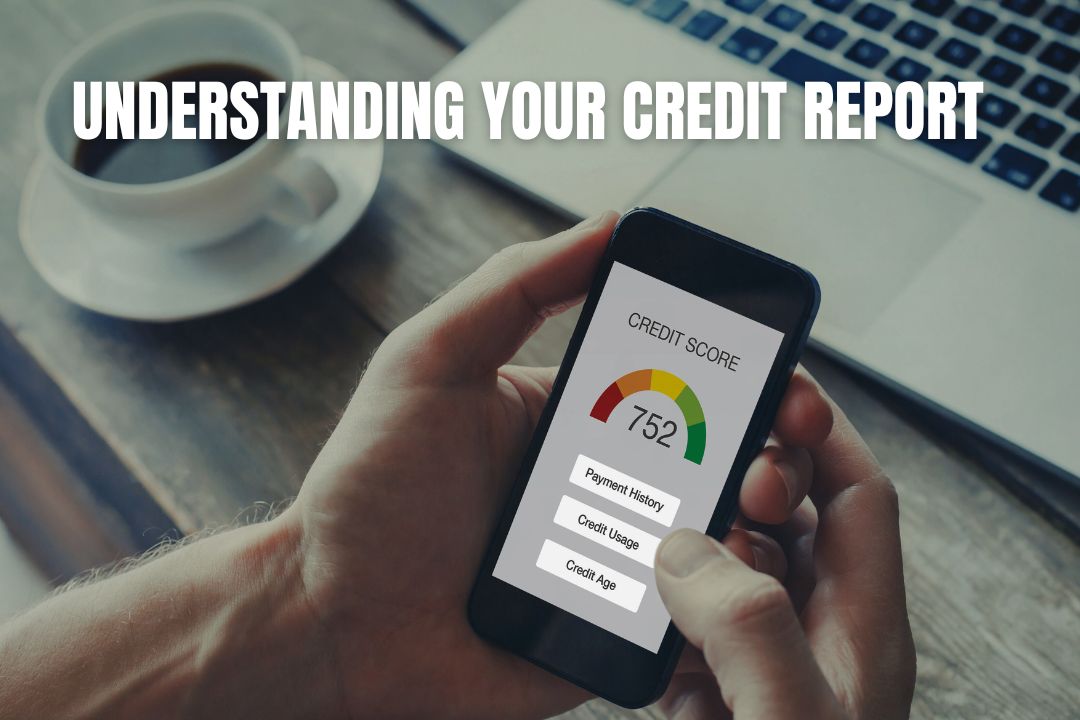Understanding Your Credit Report
October 14, 2025

A credit report reflects your financial history and behavior. Lenders, landlords, and even employers may use this report to assess trustworthiness and financial stability. Staying informed about your credit report is crucial for managing personal finances, preventing errors, and safeguarding your financial reputation.
Key Takeaways on Understanding Your Credit Report
- What It Contains: Your credit report is a detailed summary of your financial history, including all your credit accounts, payment records, outstanding balances, and public records like bankruptcies.
- Impact on Your Score: The information in your report directly calculates your credit score. Your payment history has the most significant influence, followed by the amount of money you owe and the length of your credit history.
- How to Check It: You are entitled to one free credit report each year from the three main bureaus, Experian, Equifax, and TransUnion. Regular reviews help you catch errors and signs of fraud early.
- Correcting Mistakes: If you find an error on your report, you have the right to dispute it with the credit bureau. Supplying evidence, like payment records, will support your claim.
- Maintaining Good Credit: To keep your credit report healthy, focus on making payments on time, keeping your credit card balances low, and being selective about applying for new credit.
- The Value of Awareness: Knowing what is in your credit report helps you make smarter financial decisions, qualify for better interest rates, and manage your financial reputation effectively.
Register Your LLC
Company Registration
START NOW
What a Credit Report Includes
A credit report contains detailed information about your credit accounts, including credit cards, loans, and mortgages. It lists payment history, account balances, and the status of each account. Inquiries from lenders and collections activities are also recorded. Public records, such as bankruptcies or tax liens, may appear as well. Each element contributes to the overall assessment of your creditworthiness, making accuracy essential.
How Credit Scores Are Affected
Your credit score is calculated based on the information in your credit report. Payment history is the most influential factor, followed by amounts owed, length of credit history, types of credit used, and recent inquiries. Even minor errors, such as an incorrect balance or an account that does not belong to you, can affect your score. Monitoring your report regularly helps ensure the information accurately reflects your financial behavior.
Checking Your Credit Report
Federal law grants you access to one free credit report per year from each of the three major credit bureaus: Experian, Equifax, and TransUnion. Requesting these reports allows you to identify errors or discrepancies before they affect your financial opportunities. Reviewing your credit report also helps detect potential fraud, such as accounts opened without your authorization or unusual activity that may indicate identity theft.
Correcting Errors
Mistakes on a credit report can be disputed directly with the credit bureau reporting the issue. Providing supporting documentation, such as payment records or statements, increases the likelihood of a correction. Lenders are required to investigate disputes and respond within a set timeframe. If challenges persist or violations occur, consulting a consumer rights attorney can provide guidance on legal options to ensure your rights are protected and errors are resolved appropriately.
Maintaining a Healthy Credit Report
Good credit habits prevent issues and support long-term financial stability. Making timely payments, keeping credit card balances low, and limiting new credit inquiries are fundamental practices. Diversifying credit types responsibly and maintaining older accounts can improve credit history depth, which positively impacts scores. Regularly reviewing your credit report ensures that any discrepancies or fraudulent activity are caught early.
The Benefits of Awareness
Staying informed about your credit report empowers better financial decisions. It allows you to plan for large purchases, negotiate lower interest rates, and demonstrate financial responsibility to lenders and other entities. Awareness also helps identify areas where credit habits can be improved, creating opportunities for growth and stronger financial management.
Monitoring your credit report is an ongoing practice that helps protect your financial future. Accessing your reports regularly, reviewing for accuracy, correcting errors when necessary, and maintaining healthy financial habits ensures your credit profile accurately reflects your responsible behavior. These steps support both personal and professional financial goals and provide peace of mind in an increasingly credit-driven world. Look over the infographic below to learn more.

FAQs for Understanding Your Credit Report
What kind of information is on my credit report?
Your credit report contains a comprehensive summary of your credit history. This includes details on your credit cards and loans, your payment history, current balances, any collections activities, and public records such as bankruptcies.
How often should I check my credit report?
It is a good practice to check your credit report at least once a year from each of the three major credit bureaus. Federal law allows you to get one free report from each of them annually. More frequent checks can be useful if you are planning a major purchase or are concerned about identity theft.
What is the biggest factor that affects my credit score?
Your payment history is the single most important factor influencing your credit score. Consistently making payments on time has a very positive effect, while late or missed payments can lower your score significantly.
What should I do if I find an error on my credit report?
If you discover a mistake, you should dispute it directly with the credit bureau that is reporting the incorrect information. You will need to explain the error and provide any supporting documents you have, such as bank statements or receipts, to prove your claim.
Can employers see my credit report?
Yes, some employers may review your credit report as part of their hiring process, but they must get your written permission first. They use it to assess financial responsibility, particularly for roles that involve handling money.

